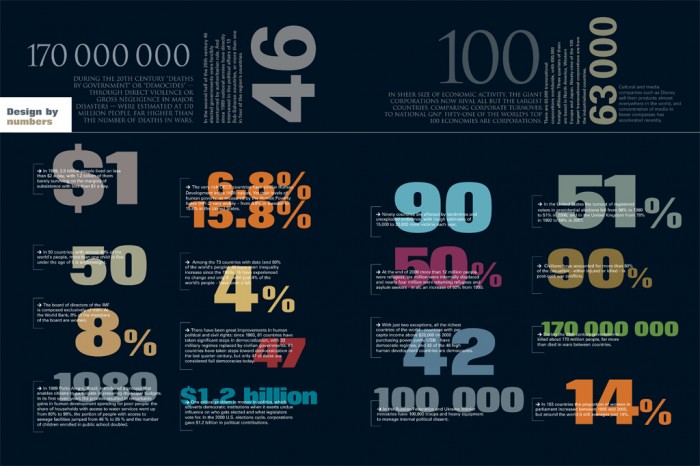First Published in

In 50 countries, with almost 40% of the world`s people, more than one child in five under the age of 5 is underweight.
The board of directors of the IMF is composed exclusively of men. At the World Bank, 8% of the members of the board are women.
Among the 73 countries with data (and 80% of the world`s people), 48 have seen inequality increase since the 1950s, 16 have experienced no change and only 9 - with just 4% of the world's people - have seen a fall.
In 1989 Porto Alegre, Brazil, introduced a process that enables citizens to participate in preparing municipal budgets. In its first seven years the process resulted in remarkable gains in human development spending for poor people: the share of households with access to water services went up from 80% to 98%, the portion of people with access to sewage facilities jumped from 46 % to 85 % and the number of children enrolled in public school doubled.
There have been great improvements in human political and civil rights: since 1980, 81 countries have taken significant steps in democratization, with 33 military regimes replaced by civilian governments. 81 countries have taken steps toward democratization in the last quarter century, but only 47 of these are considered full democracies today.
One critical problem is money in politics, which subverts democratic institutions when it exerts undue influence on who gets elected and what legislators vote for. In the 2000 U.S. elections cycle, corporations gave $1.2 billion in political contributions.
Ninety countries are affected by landmines and unexploded ordinance, with rough estimates of 15,000 to 20,000 mine victims each year.
At the end of 2000 more than 12 million people were refugees, six million were internally displaced and nearly four million were returning refugees and asylum seekers - in all, an increase of 50% from 1990.







